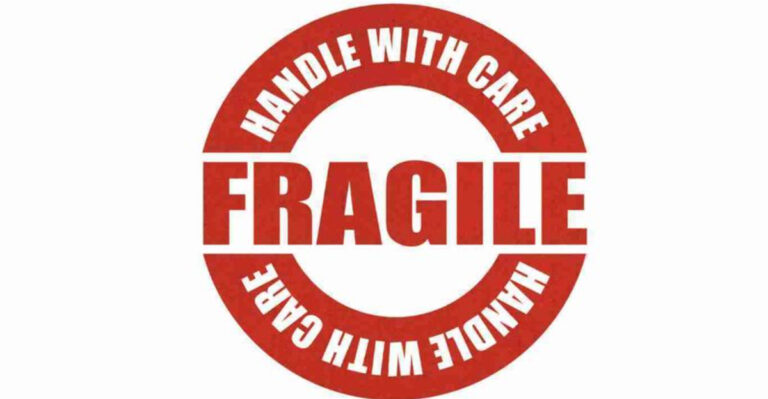Narcissist Gaslighting: Spot And Stop The Abuse
When you first become involved with a narcissist, they’re charming and make you feel special. Soon after, however, things change. They realize that since you can’t fix their deep-seated issues, you should be punished, and the emotional abuse begins.
Narcissist gaslighting is the main tool they use to get control. The term gaslighting describes a set of manipulation tactics used to confuse and mislead someone until they’re pliable, vulnerable, and easy to influence.
By distorting their victim’s perception of reality, a gaslighter ensures that what they say won’t be challenged and that their actions won’t be questioned. This form of psychological and emotional abuse comes naturally to narcissists.
Their lack of empathy and sense of superiority make it easy for them to lie, manipulate, and deceive their victims to get what they want, which is to feed their fragile egos and meet their own needs at the expense of others.
Let’s take an in-depth look at narcissist gaslighting: how it affects the victim, how to recognize it, and how to deal with it.
What Is Narcissist Gaslighting?

In the devaluation stage of a narcissistic relationship pattern, after the narcissist realizes that someone isn’t what they imagined them to be, they try to get validation in other ways. Narcissist gaslighting is a form of manipulation they use to achieve their goals.
There are three types of narcissists, and they all focus only on their own needs and don’t care how it affects other people.
The grandiose narcissist feels a sense of entitlement and wants to be treated as superior.
The vulnerable narcissist is emotionally sensitive and feels inadequate, so they feel victimized unless they’re getting special treatment.
The malignant narcissist is similar to a sociopath – they want to control and exploit, so they dominate and manipulate others without remorse.
Narcissistic gaslighting doesn’t only take place in romantic relationships. A gaslighting narcissist can be a friend, family member, co-worker, or narcissistic parent. All of these toxic relationships hurt the victim and damage their mental health.
What is gaslighting?
Gaslighting is a narcissist’s favorite weapon. It’s a set of manipulation tactics that shifts blame onto the victim by distorting the truth until you’re convinced to do what they want and give them full control.
It’s a form of psychological and emotional abuse that involves various gaslighting techniques intended to make you question yourself: your feelings, thoughts, memories, reality, and sanity and, over time, make you doubt your sense of self and your own self-worth.
A narcissist doesn’t care about the truth, only about getting what they want, so they have no problem invalidating your feelings, thoughts, and perception. If you challenge them, they turn it around and convince you that you’re the abuser and they are the victim.
They use a pattern of abusive behaviors that amount to brainwashing with the intent of making you doubt yourself and lose trust in your own perceptions so that instead, you’ll trust and obey them without question.
How do you know if you are being gaslighted?
Signs of gaslighting can be difficult to spot if you’re not familiar with them. If you already have low self-esteem, you might also not trust your gut feeling that something is wrong.
What seems like normal behavior at first glance can be a harmful manipulation tactic that you simply don’t recognize.
Gaslighting can begin slowly and be related to seemingly insignificant matters, but over time, it chips away at your sense of self. It creates self-doubt until you’re not sure about what’s real and what isn’t and even makes you question your own sanity. This is how a narcissist gains control.
Here are some warning signs of gaslighting in someone’s behavior to help you figure out if you’re involved in an abusive relationship:
• Lying, omitting the truth, leaving out facts.
• Contradicting things you know are true.
• Calling you crazy.
• Denying things that happened.
• Minimizing your feelings when you express them.
• Dismissing your feelings and concerns.
• Changing the topic of conversation.
• Evading when asked questions.
• Being vague on purpose.
• Blaming you for something they’ve done.
• Turning the tables on you when you try to talk to them.
• Shaming you for your behavior, feelings, appearance, reactions, anything.
• Criticizing and lecturing you, pointing out your flaws.
• Shutting down when you want to talk.
• Refusing to talk about something.
• Threatening you.
• Using your personal information to hurt you.
• Guilt trips.
• Pretending they don’t understand what you’re talking about.
• Insults, demeaning words, and name-calling.
• Denying they remember something they do.
• Trying to confuse you on purpose.
• Breaking promises.
• Disagreeing with something that would mean they aren’t right.
• Projecting their own actions onto you.
• Accusing you of abusing them.
• Claiming you did or said something you didn’t.
• Rejecting your account of events.
• Using other people as allies or telling them how problematic you are.
• Distorting situations to hurt you.
• Accusing you of overreacting.
• Refusing to hear you out.
• Ignoring your boundaries.
• Exaggerating your actions to make you seem unbalanced.
• Trying to explain to you that you don’t see things correctly.
RELATED: 52 Manipulative Things Narcissists Say In An Argument
Narcissist gaslighting examples

Narcissistic personality disorder or NPD is a mental condition that can only be diagnosed by a doctor, but the term ‘narcissist’ is often used to describe someone who only cares about themselves without considering how their behavior affects others.
This includes manipulative behavior and emotional abuse that’s damaging to their victims to convince them that the narcissist is never to blame using various gaslighting tactics. Here are some examples of gaslighting that illustrate how insidious it is:
1. Classic gaslighting
When a narcissist denies your reality by denying your feelings, thoughts, and needs and makes you doubt it, they make sure that you depend on them and give them control over your life.
They pretend like they’re reasonable while you’re too emotional or argumentative. You’re made to believe that your feelings are out of line and that you’re overreacting.
This is what’s usually considered gaslighting, even though it’s a much broader term that includes multiple behaviors.
2. Silent treatment
Even though the silent treatment seems like it’s nothing serious because it’s passive, it’s a form of emotional abuse and a part of gaslighting.
A narcissist uses the silent treatment to force you to apologize and take the blame regardless of whether or not you did anything wrong. This is how they make you doubt yourself and act the way they want you to.
3. Stonewalling
When you try to talk to your abuser about something they don’t want to talk about, they avoid engaging with you. They stay silent and ignore you while you talk – they might physically turn away or pretend they don’t understand what you’re saying.
This causes you frustration and feeling like your concerns aren’t being heard and have no value. You have a choice to give up or escalate the argument, both of which they can use to their own benefit.
4. Fear
A narcissist can make you avoid expressing your feelings by making you afraid. If they tell you that there will be consequences for your behavior, they train you to stop behaving in a certain way.
This makes you feel that if you do act in a way they warned you against, you deserve whatever happens to you.
5. Contradictions
When a narcissist makes you question your thoughts and memories by contradicting you with their own versions. Slowly, this makes you start doubting yourself because they’ve proven time and time again that you’re wrong.
6. Expectations
Narcissists manipulate you by making you feel like you’re supposed to know what they want and what you’re supposed to do even if they never told you.
Their behavior and demands are presented as being for your own good and that you’re the problem.
This makes you feel like you’re ungrateful if you’re unable to read their mind and that you’re oversensitive if you feel the opposite of what they want you to feel like.
7. Minimizing/trivializing
To make you feel bad about yourself, your abuser makes you feel guilty or believe that your feelings and thoughts are unreasonable.
Nothing you mention is a big deal. They tell you that your needs are unimportant, so that you would feel selfish when you try to meet them.
8. Denial
The narcissist outright rejects that something happened and tries to convince you that you’re making things up and that it didn’t happen. They don’t do this because they truly believe it, but to make you question yourself on purpose.
9. Diversions
A narcissist can use a variety of tactics to divert your attention from your real feelings or to project their own onto you.
Because they don’t want to deal with your emotions, they use techniques such as blame-shifting, changing the subject, and accusing you of something they’ve done to induce a variety of negative feelings.
10. Jokes
Insults and cruelty under the guise of jokes are often used by narcissist abusers to make you feel bad about yourself. If you can’t take a joke, there’s something wrong with you, and if you laugh at it, you slowly start to believe their words. Narcissists love to use this when there are others around.
RELATED: 12 Common Examples Of Narcissist Text Messages (+ How To Respond)
What are some gaslighting phrases?

You don’t have to be in a romantic relationship with a narcissist for them to gaslight you. For example, a co-worker might accuse you of being hysterical after you raise an issue with something they did.
Even separate occurrences of gaslighting like this can be damaging, but when gaslighting continues over a period of time, the abuser brainwashes you until you stop trusting your own instincts and start believing everything they say.
The following phrases are often red flags that point to gaslighting.
1. “It was just a joke.”
The narcissist dismisses your feelings by making you feel ashamed of your reaction.
• Lighten up.
• It’s not a big deal.
• You can’t take a joke.
• You take everything so seriously.
• Just let it go.
2. “You’re too sensitive.”
They’re making you feel like your feelings aren’t valid and that you are the problem if you’re affected by their actions.
• That wouldn’t hurt my feelings.
• Don’t take things so personally.
• Why are you upset?
• Get over it.
• You’re being emotional.
3. “You’re ungrateful.”
A narcissist only cares about their own needs, so if yours get in the way of theirs, they shame you for expressing how you feel and make you feel guilty about having needs at all.
• How much attention do you need?
• That’s not important.
• If you really loved me, you’d…
• I guess I can’t say anything to you.
• Where did I go wrong?
• We already talked about this.
• Why are you bringing that up?
4. “That never happened.”
By questioning your reasoning, the narcissist is making you question yourself and your perception. In the long term, this makes you distrust yourself and rely on them.
• I never said that./I never did that.
• You’re just confused.
• That is not how it happened.
• You’re imagining things.
• I don’t remember saying that.
• It must have been someone else.
5. “You never told me that.”
When the narcissist wants to make you doubt yourself, they put the blame on you and make it seem like you’re the one who needs to be questioned instead of them.
• You’re twisting things.
• That’s not what I meant.
• I don’t know what you want me to say.
• Don’t put words into my mouth.
• You’re taking things the wrong way.
6. “Why are you angry?”
If you comment on something that the narcissist doesn’t want to talk about, they’ll take your words and turn them around to make you appear angry and act offended and hurt.
• You’re being dramatic.
• You’re overreacting.
• You’re blowing things out of proportion.
• Why are you picking a fight?
• You’re making things up.
7. “Why are you like this?”
The narcissist likes to play the victim and make you wonder if you’re really doing something wrong whenever you voice your feelings and needs.
• You’re always complaining.
• You always have to be right.
• You always have to have the last word.
• It’s always something.
8. “You’re crazy.”
Making you feel crazy is the favorite method of a narcissist because it works on two levels: it makes you doubt yourself, and it makes them seem like the victim.
• Just calm down.
• Are you hearing yourself?
• You’re not making sense.
• What are you talking about?
• You need help.
9. “You’re being irrational.”
Similar to making you feel crazy, making you feel like you’re being irrational gives the narcissist the upper hand and feeds their ego while at the same time shaming you and making you wonder if you’re the one who’s being hurtful.
• Listen to yourself.
• Why are you being defensive?
• Are you kidding me?
• You think you know everything.
• I’m not arguing.
10. “I do this because I love you.”
Shifting blame and making it seem like whatever the narcissist is doing is for your benefit makes you feel lousy for speaking up and gives them a sense of superiority.
• You made me…
• I remember you…
• It’s your fault I…
• If you only…, I would…
RELATED: 30 Alarming Gaslighting Phrases You Need To Watch Out For
Dealing With Narcissist Gaslighting

To be able to convince you to behave, feel, and even think in a certain way, the gaslighting narcissist first makes you believe that they have your best interests in mind.
This trust is why narcissistic abuse can easily damage your sense of reality – when someone cares for you, you assume they won’t hurt you on purpose, so you implicitly accept that their actions are for your own good.
What are the effects of narcissistic gaslighting?
Victims of gaslighting can be romantic partners, friends, children of narcissists, or have any other kind of relationship with them, but they always trust them to some degree. Gaslighting causes psychological trauma and is harmful to your mental health.
Effects of narcissistic gaslighting include:
• Self-doubt and lack of trust in yourself. You start to believe that you’re incapable of making decisions on your own.
• Second-guessing yourself and feeling like you keep making mistakes.
• Shame about your behavior, personality traits, and anything else your abuser points out as negative.
• Agreeing with everyone and everything to avoid conflict.
• Low self-esteem and feeling like you’re not good enough.
• Not knowing who you really are and what you want because of constant attacks on your sense of self.
• Feeling dismissed and invalidated.
• Issues with anxiety, depression, or substance abuse.
• Confusion, not trusting your perception and not trusting your memory.
• Blaming yourself and apologizing when you haven’t done anything or for other people’s mistakes.
• Making excuses for your abuser’s behavior to yourself and others.
• Feeling like you’re losing your mind.
• Inability to set and enforce boundaries in any relationship.
• Feeling like something is wrong, but not trusting your intuition.
• Being oversensitive, easily crying, and wondering if you’re overreacting.
• Feeling miserable even though your life seems to be going well.
• Feeling like whatever you do, you’ll make a mistake and that you can’t do anything right.
• You feel like your personality has changed.
How do you respond to a narcissist gaslighting?
When a narcissist is gaslighting you, they use made-up mistakes to shift the blame onto you and make it seem that there’s something wrong with you. You end up feeling confused, afraid, and disrespected and apologizing for something you didn’t do.
How to deal with narcissistic gaslighting to avoid these feelings?
1. Learn to recognize gaslighting
The purpose of gaslighting is to make you believe whatever your abuser wants you to believe so that they have control of you. They make you feel like you don’t know what’s what, like you’re going crazy or like you must be wrong if they say so.
Learning to recognize the signs and behaviors and be on alert whenever you hear one of the phrases that are commonly used to manipulate you can help you prepare, respond, and defend against attempts to gaslight you.
2. Get support
Having someone on your side is instrumental when you need help making sense of the lies and deceit you’ve been subjected to.
Reaching out to family and friends or getting professional help to support you and ensure that you know you’re not imagining things can make a vital difference in how being the victim of gaslighting affects you. If you don’t have access to anything else, even online therapy can be of great help.
3. Listen to your intuition
Learn to respect your gut feeling when it’s telling you that something is wrong. This is especially important if you’ve learned to doubt yourself and you’re looking for other people, especially the person who is gaslighting you, to validate you.
Be mindful and stay aware of your thoughts and feelings, regardless of what your gaslighter is trying to make you think. If you stay grounded in the present and prioritize your own perception of the experience, they’ll have less chance of shaking your sense of reality.
4. Collect evidence that proves your own reality
Document or otherwise ensure that you have evidence to prove that you’re a victim of gaslighting. Save all text messages, keep a journal, make a record, or tell things to someone who will remember them. Make sure you can do a fact check when your abuser tries to convince you of something that never happened.
Some instances of gaslighting can be difficult to prove, but as long as you’re determined to push back against abuse, you can learn to rely on your own memories instead of whatever the narcissist is trying to get you to believe. This can help you heal after being a victim of gaslighting.
5. Refuse to engage
Even if you can’t provide evidence to your abuser that you’re aware of reality, you can still refuse to talk to them or engage when they’re trying to manipulate you.
Once you learn to recognize what’s going on, they lose the power to convince and turn things around on you. As long as you’re self-aware and understand what they’re trying to do, the narcissist can no longer control you to the extent they could before you knew what they were doing.
6. Be firm about boundaries
A narcissist doesn’t care about boundaries. They feel entitled and believe rules don’t apply to them. Their only concern is their own ego and their own reality. Prioritize your sanity, and don’t let them violate your boundaries. Walk away if you have no other option.
Leaving a relationship in which you’re a victim of gaslighting isn’t always possible, or you might not want to, but sometimes, especially if physical abuse is also involved, it might be the only solution that will completely work.
See also: Narcissistic Stare: How To Recognize And Deal With It
Reclaim Your Reality

Emotional abuse is dangerous and harmful – it can be difficult to escape and could create lasting damage to your mental health. The first step to dealing with narcissist gaslighting is to realize what it is that’s happening.
A narcissist makes you question your reality and your sanity with their lies, manipulation, and contradictions. After a while, you start to believe them, and they use your surrender to control you.
When you’re able to realize what’s happening, you’ll be able to push back and stand your ground.
Be aware of their tactics and the words they use to put you down and make you doubt yourself. Prioritize self-care and practice mindfulness to stay in touch with your reality and your feelings.
Stay calm when dealing with a situation in which the narcissist is trying to gaslight you without allowing them to violate your boundaries. If you’re determined to stop narcissist gaslighting and you first and foremost believe in yourself, they won’t be able to break through your defenses.








